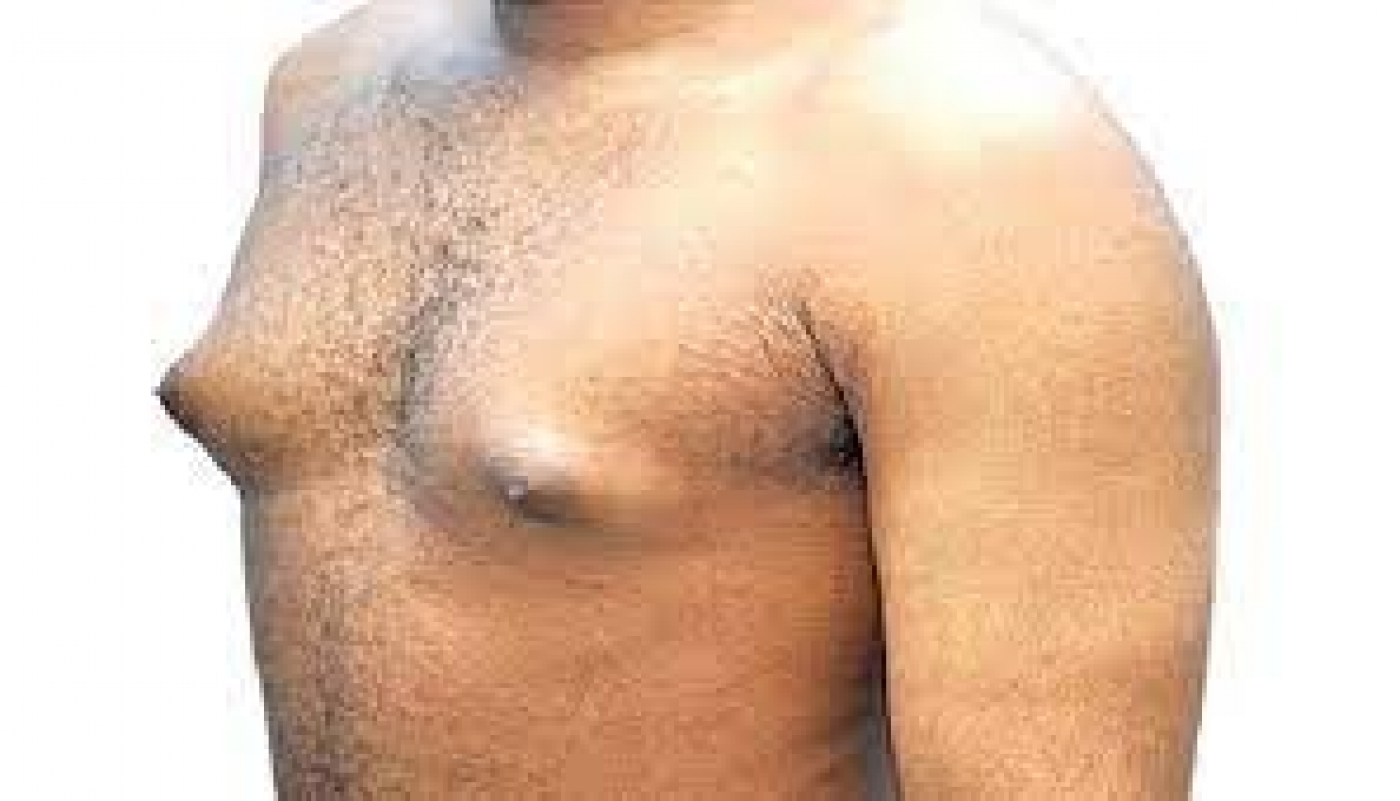Speaking with PUNCH Healthwise, a consultant General Surgeon at the University of Ilorin Teaching Hospital, Kwara State, Professor Olayide Agodirin, said enlarged breasts in males can either be physiological or pathological – gynecomastia
He, however, said it can be dangerous when the cause is gynecomastia.
The expert noted that boys may have enlarged breasts when attaining puberty but that it often subsides once puberty is over.
The professor added that an imbalance or a change in the normal hormone ratio can also lead to men developing enlarged breasts.
While noting that the hormone that dominates determines the difference between a man and a woman in terms of breast size, Dr. Agodirin said testosterone is the most prevalent hormone that gives males such a trait.
The general surgeon further explained that pathologic gynecomastia can also be related to such hormonal changes.
According to him, enlarged breasts may be an indication that the organ that produces testosterone in men, which is the testicle, may have a problem.
The problem may be from a younger age due to worm infestation and this can also affect the testis, such that it cannot produce enough hormones.
He said, “For example, the liver is the organ that metabolises and removes excess hormones from the body. In some situations, if the liver has a problem and can’t clear out the estrogen, then it can give up such function and the hormone becomes higher than normal in the body. This will make the person to start having enlargement of the breast.
“It may be that the testis itself had an accident such that made it loses normal viability, or it might have been removed. Sometimes, in some males that have prostate cancer, the testis is removed because the hormones of the testis actually pick the cancer. So it is sometimes removed to starve the cancer cells. So, of course, once you remove the testis, the source of testosterone, which is the main hormone, declines, causing the person’s breast to grow big.
“Some drugs can also cause it. Drugs used to treat some types of ulcers can also make the breast to grow. Drugs for testicular and liver problems can also cause it.”
Dr. Agodirin, however, said the causes of gynecomastia if it is not physiological, may cause a health problem.
“It is not cancerous and it usually doesn’t change to cancer. What happens is that almost all the changes that can occur in the female breast can also occur in the male breast. It is not really life-threatening but if the cause is linked to a damaged liver or tumour in the testicle, this can be dangerous. On its own, it is not dangerous but it is the underlying cause that poses danger to life.”
On his part, an Endocrinologist, Dr. Bola Alalade, said hyperthyroidism, chronic renal failure, testicular cancer, primary and secondary hypogonadism, malnutrition, and chronic alcoholism could be the cause of pathological gynecomastia.
He noted that some of the causes of pathological gynecomastia can lead to infertility, stressing that the dangers are mostly related to the underlying causes.
“Gynaecomastia is a benign enlargement of the male breast resulting from a proliferation of the glandular component of the breast. Pseudo gynecomastia is when there is fat deposition without glandular proliferation.
“Some types of cancer can cause pathological gynecomastia. Also, some people with gynecomastia may develop breast cancer.
On treatment options for the condition and how to avoid it, Dr. Alalade said, “The treatment can either be medical or surgical. Patients can have breast reduction surgery or reduction mammoplasty. Other more extensive surgical procedures are also available.
“See a doctor for a thorough examination if you notice breast enlargement or feel nodules or lumps in the breast. Regular self-breast examination is important. Breast sizes greater than or equal to 5cm are significant and require further evaluation. Avoid excessive alcohol intake as it could be a cause. ”
Meanwhile, a study published in the journal Clinical Endocrinology analyzed data from over 400 men who were seen in an endocrine clinic for the evaluation of gynecomastia.
The researchers found that the most common cause of gynecomastia was the use of medications known to cause gynecomastia, followed by medical conditions such as liver disease and renal failure.
A smaller percentage of cases were caused by hormone imbalances or tumours.
The study also found that gynecomastia was more common in men who were overweight or obese.
The researchers discovered that men with gynecomastia were more likely to have impaired glucose tolerance, low testosterone levels, and elevated triglycerides.
They were also known to have an increased risk of developing Type 2 diabetes, high blood pressure, and coronary artery disease.
In addition, gynecomastia was associated with higher levels of depression and anxiety or may be a sign of more serious underlying health problems, such as chronic liver or kidney disease.
Additionally, the study found that gynecomastia was more likely to resolve on its own in younger men, while men who are overweight or obese are less likely to have a resolution of their gynecomastia.
A different study published in the journal European Urology found that those who had gynecomastia were at a slightly higher risk of developing prostate cancer than those who did not have gynecomastia.
The study found that the risk of developing prostate cancer was higher in men who had more severe gynecomastia, suggesting that the degree of breast enlargement may be related to the risk of developing prostate cancer.
source: healthwise







